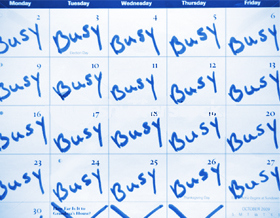Two weeks to flatten the curve is going well over two years now. We have been battling this pandemic with all we’ve got and still COVID fights back. Everyone has felt the effects as all our lives have changed drastically over the last couple years. For first responders who put themselves at risk every day, it’s not just about the expected dangers of the job, but now they face staffing shortages. To add to the stress of an already stressful job, first responders must cover each other’s shifts, take on more overtime, and add more calls into an already packed day.
At first, it was COVID, social distancing and mask-wearing wasn’t enough to keep some safe. Then came the vaccine mandates, forcing many out of their profession. Let the government control your medical choice (whether you agree or not) or lose not only your job, but your profession. With Omicron surging lately, more go out sick now than ever before. The timing is terrible.
In the state of Massachusetts alone over 2,000 state employees were put on the chopping block last October, with 500 fired by November. That’s only counting those affected by the mandate. Still more were out due to illness from COVID. This is just state employees; so how’s this affecting first responders?
In Seattle, the police department had over 300 officers leave by mid-October. They had to ask detectives to start going on calls to cover shifts. Massachusetts state police lost over 150 by that time. If they hadn’t felt the strain yet with colleagues being out sick, they felt it now knowing they wouldn’t be coming back. This only adds stress to an already high-stress job. How much more can one take?
Many had hoped that with a majority agreeing or caving to the mandate, herd immunity would be reached. COVID reared its ugly head once more with a new strain: Omicron. While overall this variant seems to be more mild, especially for those otherwise healthy, it’s far more contagious and is taking out everyone in its path, vaccinated or not.
In Honolulu, Ocean Safety, Health Services, and EMS struggled and needed to close towers as 50 workers were out sick early this month. Authorities told citizens to call 911 for any emergencies in areas where towers were closed. In Washington DC, medics are getting stuck at ERs and it’s taking longer to get each ambulance back on the road. Fire and EMS staff are working overtime to cover shifts for over 400 staff out sick or quarantining just last month.
New York residents were instructed to only call for life-or-death emergencies due to their first responder shortages. In Lawrence, MA, 60% had confirmed COVID since it all began but half had it since this past December alone. Just recently, Worcester Fire Department had 15% of their department out with COVID. More out means more overtime and more overtime means more are being overworked. This taxing routine can and will take a toll on anyone.
We need to watch our first responders now more than ever. If their shifts are on overload, their brains must be too! They have to go from one task to another, complete reports, let all the stress of the last call go and dive into another (probably late because they can’t do anything fast enough) with full capacity. While on the next call, the one after is surging and they’re already late to that one. It builds and builds until they can’t carry it. Their mental health is in serious risk under such conditions. If that’s not enough (which of course it is!), all the stress lowers one’s immune system, making them more susceptible to illness, especially an illness which is highly contagious, such as Omicron.
We need to open channels for our first responders to decompress and find the most rest they can between shifts. Talking, letting them have time alone, reducing the at-home responsibilities, and other support may help. Being in the moment with them when possible helps too. Sometimes, it’s all about taking a moment to breathe. A simple moment to breathe is enough to let things go.
There is hope though, for those searching for some. Omicron is Greek for little ‘o’ which is sister to Omega, Greek’s big ‘O.’ Perhaps, in a desperate search to cling to hope, this could mean the end of COVID. It’s a hell of a surge at the end, but perhaps we’re almost there. It’s something to think about.
